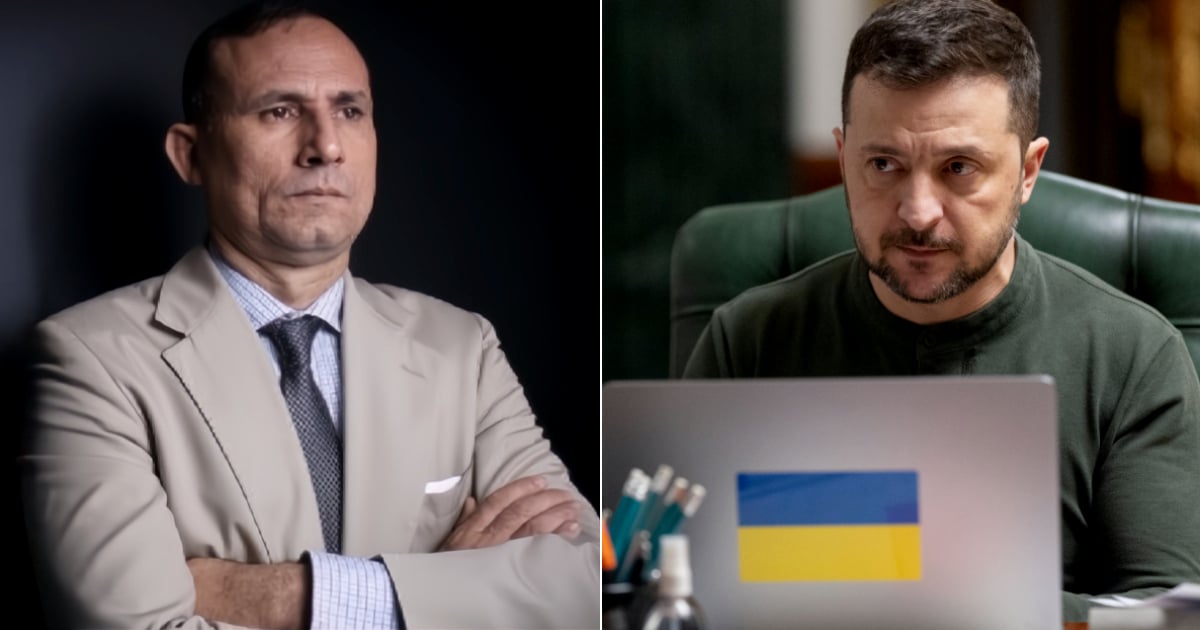From Altamira in Santiago de Cuba, the situation appears clearer than it does from Foggy Bottom, Washington D.C.'s neighborhood housing the U.S. State Department and other government offices. This is the impression given by Cuban dissident José Daniel Ferrer in a recent post, where he highlighted the dangers posed by the current trajectory of U.S. foreign policy and its engagement with Vladimir Putin's Russia.
This Monday marks the third anniversary of Russia's invasion of Ukraine, and Ferrer, leader of the Patriotic Union of Cuba (UNPACU), took the opportunity to express his perspective on the conflict and its geopolitical ramifications. He also reaffirmed his strong support for Ukrainian President Volodymyr Zelensky.
Ferrer warned, "Putin's Russia and Communist China represent the greatest threats to peace, freedom, democracy, and human rights worldwide. If the West doesn't unite and confront these tyrannies and their allies in Iran, North Korea, Cuba, Venezuela, and Nicaragua, among others, in a few decades, Russian and Mandarin could be mandatory languages across Europe and even the United States."
For those who might think Ferrer, recently released from political imprisonment, is misinformed or exaggerating, he reminded them of past scenarios that, although once deemed unlikely, have become harsh realities. "Do I exaggerate? That's what many said when we predicted Venezuela would become another Cuba under Chávez... Don't think it's the same? If unity and firmness aren't shown, you'll see. I'm with Ukraine and Zelensky," Ferrer concluded.
Ferrer has consistently opposed any rapprochement between the West and Russia, cautioning about the geopolitical consequences of failing to challenge the Kremlin's authoritarian allies. His warning comes as the Russian invasion of Ukraine reaches its third year, a conflict in which the Cuban regime has played an ambiguous role, indirectly facilitating the recruitment of young Cubans into the Russian military with promises of citizenship and economic stability.
As a prominent voice within both Cuban civil society and the diaspora, Ferrer has been instrumental in exposing the ties between Havana and Moscow. His advocacy has gained support from key U.S. political figures, such as Cuban-American congressmen from Florida like Mario Díaz-Balart and María Elvira Salazar, as well as current U.S. Secretary of State Marco Rubio, all of whom have emphasized the need to toughen policies against the Cuban regime due to its alignment with Russian and Chinese interests.
The presence of Cuban mercenaries in Ukraine has been extensively documented through videos and reports by independent media and international organizations. Ferrer has warned that without decisive action from the West, Russian and Chinese dominance could spread, threatening the sovereignty and democratic values of numerous nations.
Ferrer’s stance within the Cuban opposition and diaspora has made him a key figure not only in the fight against Cuba's dictatorship but also in international activism against authoritarian expansionism.
Western Response to Authoritarian Threats
What is José Daniel Ferrer's main concern regarding Western foreign policy?
Ferrer is primarily concerned that the lack of a unified Western response to Russia and China's authoritarian regimes could lead to a future where Russian and Mandarin become mandatory languages, indicating broader geopolitical dominance.
How has the Cuban regime been involved in the Russian-Ukrainian conflict?
The Cuban regime has played an ambiguous role by indirectly supporting the recruitment of young Cubans for the Russian military, offering them citizenship and economic stability.
Which U.S. political figures support Ferrer's position?
Ferrer has received backing from Cuban-American congressmen like Mario Díaz-Balart and María Elvira Salazar, as well as U.S. Secretary of State Marco Rubio, who advocate for stricter policies against the Cuban regime.
